SUMMARY
This is AI generated summarization, which may have errors. For context, always refer to the full article.
(Editor’s Note: This story was first published by Newsbreak)
The recent flashfloods and landslides in Aurora and Quezon didn’t only wash away hundreds of people to their graves. They also dealt a great blow to the campaign of local governments to be given additional powers to manage their natural resources.
Illegal logging was pinpointed as having aggravated the twin disasters in Southern Luzon. Almost automatically, this triggered a wave of reports—from the town of Pasuquin in Ilocos Norte in the north, down to Palimbang town in Sultan Kudarat in the south—accusing local elected officials, along with local environmental officers and military men, of financing or protecting the illegal cutting of trees.
“Admittedly, our people (local environment officers and forest rangers) are involved [but] based on our investigation, even local government officials are involved,” Secretary Michael Defensor of the Department of Environment and Natural Resources (DENR) told Newsbreak in late December, referring to the cases of Aurora and Quezon. Thus, his preference for “keeping the [natural resource management] functions with the DENR.”
When the Local Government Code was passed in 1991, it ordered five national government agencies to devolve their functions, powers, and personnel to local government units (LGUs). All of these agencies, except the DENR, were to be fully devolved. The DENR retained the authority to make policies and regulate the management, conservation, and use of forest, land, water, and air resources across the country. The LGUs were confined to implementing the programs that the DENR initiated.
LGUs were given a semblance of independence in their environmental management functions. They can manage only communal forests and community watersheds. If they want to have authority over areas larger than these, they will have to enter into agreements with the national government, meaning a separate contract—and therefore separate application and negotiations—for every extended forest area or watershed that they want to manage on their own.
In the extraction of mineral resources, LGUs can approve only sand and gravel quarrying. Large-scale mining, such as for gold and silver, will have to be approved by the DENR.
Local powers in environmental management also largely cover garbage collection and disposal, and the enforcement of laws on smoke-belching and pollution. The local Sanggunian can also set the penalties for any violations of national environmental laws in their areas.
Shared Responsibility
But even in exercising these already limited powers over natural resources in their areas, local executives are further subject, Section 3-i says, to “national policies.”
Manuel Tabunda, who led the technical panel of the House of Representatives in drafting the Code, likened the setup to “the left hand taking what the right hand gave.” The many provisions of the Code that ended up with phrases “in consultations with” or “provided, however,” effectively negated the concept of devolution, he said. At most, he pointed out, the Code gave the LGUs powers to “implement remedial measures after the national government has destroyed the environment.”
The national government is supposed to share with the LGUs the responsibility for ecological balance. In every environmental program, it is required, according to Sections 26 and 27, to consult with the LGUs, NGOs, and other affected sectors. After the consultations, the national government can only proceed with its undertaking with “prior approval from the Sanggunian concerned.” Often, mayors and governors say, the national government either undertakes this consultation perfunctorily or doesn’t consult them at all.
Other times, local DENR officials involved in illegal practices use their powers to block the initiatives of the LGUs. In the aftermath of the tragedies in Aurora, Quezon, and Nueva Ecija, Defensor suspended eight DENR officials from those provinces suspected of involvement in illegal logging.
Tabunda says LGUs were given limited powers in environmental management because of the constitutional principle that natural resources are part of national patrimony. Because of this, local governments should not solely determine what to do with the natural resources in their areas of jurisdiction.
He recalls that during the deliberations on the proposed Code, the case of rivers and dams was used as an argument against the full transfer of the DENR’s powers and functions. “If the local government opposes the conversion of Magat River into a dam, does that mean the national government should heed the LGU’s position? What about the larger part of Luzon, which would benefit from the electricity that the dam will produce?”
Raoul Geollegue, in a paper he wrote as DENR’s regional director in Western Visayas in 2002, noted that “watershed areas transcend political boundaries and watershed projects may not be appropriate for implementation by LGUs.”
Geollegue, who is now with DENR in Northern Mindanao, said that the DENR felt then that “the administration of LGUs, which is affected by constant successions and political squabbles, is not appropriate to sustain long-term environmental projects.”
Multisectoral Bodies
Judging by their performance in the 10 years that they have shared powers with the DENR, “the locals are not yet responsible enough” to be entrusted with full powers over natural resources, Tabunda says.
He cites as example the island resort of Boracay in Aklan province. Once a pristine tourist destination, Boracay soon faced the problem of keeping garbage and pollution away from its waters and shores. Tabunda blames this on the neglect of business establishments, over which the local government had the sole authority to issue permits to operate and to monitor their compliance with environmental laws.
In a paper he wrote on the issues in the devolution of forest management, former Environment Undersecretary Elmer Mercado pointed out another reason for the failure of protecting the forests: lack of forest management skills. He said that even before devolution, in the early 1970s, under its community-based forest management program, the DENR issued “stewardship contracts” to small communities and individual families in the upland. The contract gave the families and the communities responsibilities in the management and administration of forest land. Despite the financial support that the program got, mostly from foreign donors, it was not very successful. The beneficiaries had limited skills in forest management.
In many cases, too, Defensor said, the upland dwellers are the ones who exploit the natural resources, in exchange for meager amounts that illegal operators pay them. Tabunda points out that these practices of the communities could have been monitored and stopped by the local authorities.
Apparently, however, the LGUs with successful environmental management and protection programs are the exception rather than the rule.
Geollegue said that based on his experience, the environment takes center stage in an LGU’s agenda only when the mayor or governor personally thinks it’s a priority.
A check on the list of winning programs in the seven-year-old Gawad Pangulo sa Kapaligiran (more popularly known as the Clean and Green Awards), almost all LGU-awardees, even some of those in the Hall of Fame (winners for three consecutive years), excelled in only one or two areas of environmental management—for example, garbage disposal or mangrove protection.
Only two LGUs immediately come to mind when it comes to environmental management programs that cover all forms of natural resources (forest, land, water, air) and can deal with possibly all kinds of problems that may be encountered. These are Puerto Princesa City and Negros Occidental.
It’s common knowledge that such programs worked in these LGUs because their leaders (Mayor Edward Hagedorn of Puerto Princesa and former Gov. Rafael Coscolluela of Negros Occidental) personally advocated environmental protection. The priorities and management style may change when they are no longer in power.
“It is inevitable that partisan politics spoil noble environment endeavors. Politicians know that popularity cannot be gained by enforcing rigid forestry regulations. Historically, the forest industry is a haven for the richest and the poorest of the poor, both significant players in an election game,” Geollegue said.
Tabunda agrees: “Until the local government system is no longer a highly politicized thing, it will be very hard to trust them” with full powers over the environment.
“The bottom line is accountability,” Defensor said. “If the LGU is good, then you have no problem. If the LGU is involved [in illegal activities], then you have a Mafia.”
For now, it seems that the only way to keep natural resources from exploitation is the creation of multisectoral bodies that will work closely with the DENR. The department has already started doing this, but only for forest management. It spearheaded the creation of forest protection committees in the provinces. The committees are composed of representatives of local church organizations, law enforcement agencies, civic and academic groups, NGOs, LGUs, the media, local DENR, and the national government.
They need to duplicate this concept of “protection committees” for land, coastal, air, and other natural resources.
Finally, these multisectoral bodies won’t be effective unless the DENR personnel “at all levels” do a “mind shift”—from being the “traditional regulator and enforcer” that gives orders to LGUs to being facilitators who share their technical skills to help the LGUs make this partnership work. – Rappler.com
Add a comment
How does this make you feel?
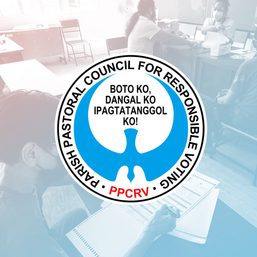
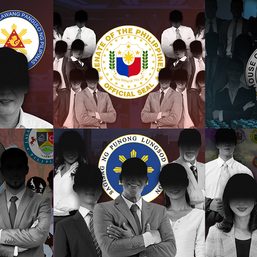


![[PODCAST] Beyond the Stories: Ang milyon-milyong kontrata ng F2 Logistics mula sa Comelec](https://www.rappler.com/tachyon/2021/11/newsbreak-beyond-the-stories-square-with-topic-comelec.jpg?resize=257%2C257&crop_strategy=attention)
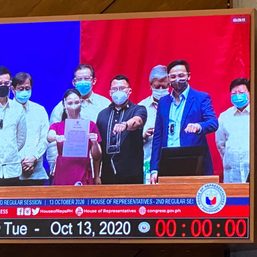
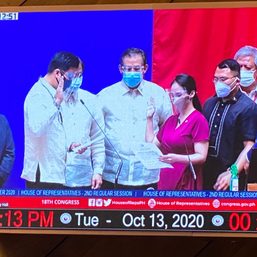
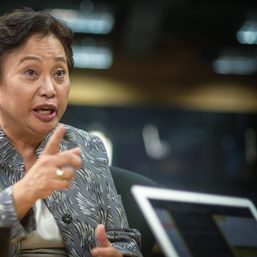

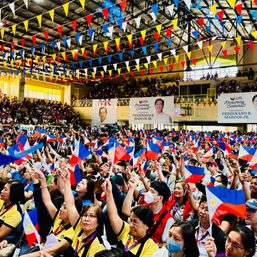
![[EDITORIAL] Ang low-intensity warfare ni Marcos kung saan attack dog na ang First Lady](https://www.rappler.com/tachyon/2024/04/animated-liza-marcos-sara-duterte-feud-carousel.jpg?resize=257%2C257&crop=294px%2C0px%2C720px%2C720px)
![[Free to disagree] How to be a cult leader or a demagogue president](https://www.rappler.com/tachyon/2024/04/TL-free-to-disagree.jpg?resize=257%2C257&crop_strategy=attention)
![[OPINION] Can Marcos survive a voters’ revolt in 2025?](https://www.rappler.com/tachyon/2024/04/tl-voters-revolt-04042024.jpg?resize=257%2C257&crop=251px%2C0px%2C720px%2C720px)
![[Edgewise] Quo vadis, Quiboloy?](https://www.rappler.com/tachyon/2024/03/quo-vadis-quiboloy-march-21-2024.jpg?resize=257%2C257&crop_strategy=attention)
There are no comments yet. Add your comment to start the conversation.